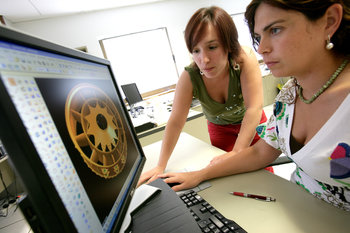
Complexity
Holism views systems as more complex than the individual complexity of parts. For example, an ecosystem that is more complex than the sum of its organisms.Causality
The idea that causality is a world of chaos, probability and paradox as opposed to a machine with clear causes and effects. For example, quantum mechanics suggests that small particles are chaotic such that they don't represent the deterministic machine once predicted by science.Human Agency
Humans are extremely complex systems that demonstrate abilities such as creativity, emotion and thought that aren't well understood. As such, holism tends to hold a respect for individual agency and the ability of people to greatly influence their future and environment.More is More
The idea that adding something to a system greatly increases overall complexity. For example, adding chemicals to the air to solve an environmental problem may do nothing but create more problems as it may have systemic impacts that aren't possible to fully predict.More is Different
The idea that adding things to systems changes them but doesn't necessarily make them more complex. For example, having four children instead of three changes a family but doesn't necessarily make parenting more complex.Analysis
Analysis is the process of breaking a system into parts to understand it. Holism may use analysis as a tool but views the common tendency to try to solve every problem with analysis as a mistake that misses the bigger picture of systems.Systems Thinking
Systems thinking is an alternative to analysis that can be described at critical thinking at the system level. For example, a macroeconomist who views an economy as a whole system as opposed to trying to understand the behavior of each individual economic actor.Design Thinking
Design thinking, the process of using creativity and invention to solve problems, can be applied to entire systems.Butterfly Effect
The observation that a very small change can eventually impact an entire system. For example, a gene mutation in a single organism that eventually benefits the survival of an entire species.Emergence
The idea that systems emerge from complex interactions between parts that are mostly random but can lead to surprising structured results.Idealism
Idealism is the theory that intangible things such as character, intelligence, spirituality, ideas, cultures, norms, stories, emotions, software, artificial intelligence and data change systems in ways that can't be described in physical terms. This can be contrasted with materialism that views everything as a physical process.Dematerialization
Dematerialization is an ongoing process whereby human systems are becoming less tangible with time. For example, economic production is rapidly shifting towards intangible value such as knowledge, software, art, fiction, music, entertainment, data, virtual environments, services and experiences. This has a tendency to deprecate materialism because physical things are an increasingly small part of social systems and economic production.Big Thinking
Holism calls for solving problems, managing risk and finding opportunity at the system level. For example, managing an economy by controlling interest rates and money supply.Elegance
Holism calls for elegant solutions that may be shockingly simple and obvious. Holistic thinking has a tendency to view systems as too complex to manipulate such that they should be left open and unpolluted. For example, solving an environmental problem such as global warming by ceasing the major activities that are causing it such as burning carbon fuels. This can be contrasted with a reductionist process of analysis whereby people measure low level things such as the carbon footprint of one sandwich versus another sandwich.Notes
Unfortunately, the words "holism" and "holistic" are overused in meaningless ways such that they are widely perceived as cliche buzzwords.| Overview: Holism | ||
Type | ||
Definition | The idea that systems are more than a collection of parts. | |
Related Concepts | ||































